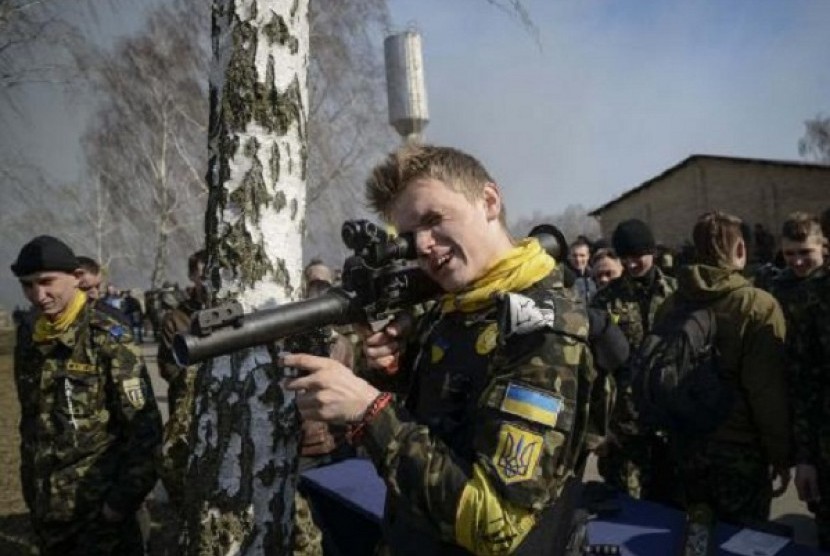REPUBLIKA.CO.ID, SIMFEROPOL - Pro-Russian leaders in Crimea made final preparations on Saturday for a referendum widely expected to transfer control of the Black Sea peninsula from Ukraine to Moscow, despite the threat of sanctions and condemnation from Western governments.
Sunday's vote, dismissed by Kiev as illegal, has triggered the worst East-West crisis since the Cold War, and ratcheted up tensions not only in Crimea but also eastern Ukraine, where two people were killed in clashes late on Friday.
The streets of the Crimean capital of Simferopol were calm on Saturday, despite a heavy military presence incongruous with the normally sleepy town. Crimean Prime Minister Sergei Aksyonov, whose election in a closed session of the regional parliament is not recognized by Kiev, said there were enough security personnel to ensure that Sunday's vote would be safe.
"I think we have enough people - more than 10,000 in the self-defence (forces), more than 5,000 in different units of the Interior Ministry and the security services of the Crimean Republic," he told reporters.
In Kiev, the Ukrainian parliament voted to dissolve the Crimean regional assembly which has organized the referendum and backs union with Russia.
While in Crimea, the Russian military has done little to hide the arrival of thousands of soldiers, along with trucks, armoured personnel carriers and artillery. Masked gunmen surrounding Ukrainian military installations in Crimea have identified themselves as Russian troops.
Most of Crimea's electorate of 1.5 million is expected to choose joining Russia in the referendum, reflecting an ethnic Russian majority. For many locals, the choice is as much economic as political.
"In Russia I can earn over three times what I do in Ukraine," said Svetlana Dzubenko, a Crimean employee on Ukraine's rail network in her 20s.
"My pay now is 3,000 hryvnias (300 USD) a month, but in Russia I would earn 45,000 roubles, or about 12,000 hryvnias... I have nothing left once I've paid for housing, heating and food. What if I want to save up? What if I get sick?"
While Ethnic Tatars, Sunni Muslims of Turkic origin who make up 12 percent of Crimea's population, have said they will boycott the referendum, despite promises by the authorities to give them financial aid and proper land rights.
Human Rights Watch (HRW) said on Saturday that self-defence units and paramilitaries in Crimea had attacked and harassed activists and journalists.
"Crimean authorities are allowing illegal and unidentified armed units to run the show in the peninsula, and to commit crimes that go uninvestigated and unpunished," said Rachel Denber, deputy Europe and Central Asia director at HRW.


